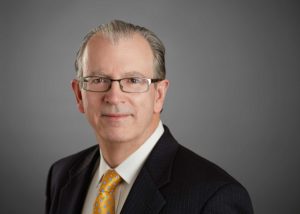RPJ Partner Mark H. Moore Addresses Key Decision on Reverse Engineering of Software
Software licensors routinely require written agreements which prohibit the “reverse engineering” of the software being licensed. The U. S. Circuit Court for the Fourth Circuit has issued an important decision which broadly defines the term “reverse engineering” of software to include the analysis of the licensed software to “learn how it works” in order to “recreate its functionality” in a competing product. The appellate court refused to adopt the alternative definition proposed by the defendant, which would have narrowly defined the term to mean only the replication of the licensor’s source code.
In SAS Institute, Inc. v. World Programming Limited, 874 F.3d 370 (4th Cir. 2017), plaintiff SAS Institute, Inc. (“SAS”), a North Carolina firm, brought suit in the U.S. District Court for the East District of North Carolina against its major competitor, World Programming Limited (“WPL”), organized in the United Kingdom. SAS develops and markets software used to manage and analyze large and complex datasets, and sells an integrated system of business software known as the “SAS System.” Users operate the SAS System by writing instructions, or “SAS programs,” in a computer programming language known as the “SAS language.” While anyone can write an SAS program, software such as the SAS System is required to make an SAS program function.
Shortly after its formation, WPL sought to exploit a market opportunity to compete with SAS by selling software capable of running SAS language programs. While developing this competing software WPL acquired several copies of SAS’s “learning” software. In doing so, WPL contractually agreed to the following prohibition on reverse engineering: “Customer may not reverse assemble, reverse engineer, or decompile the Software or otherwise attempt to recreate the Source Code, except to the extent applicable laws specifically prohibit such restriction.”
After studying the SAS learning software, developers at WPL proceeded to modify WPL’s own source code to make the two programs achieve more similar outputs – in essence, replicating the function of SAS’s software without in any way replicating SAS’s source code. As a result, several former SAS customers replaced their SAS System software with WPS.
SAS sued, among other things, for damages resulting from the violation of its license agreement. Prior to trial, the U.S. District Court granted SAS’s motion for partial summary judgment, finding that WPL’s conduct constituted “reverse engineering” in violation of the licensing agreement. Following a trial on other legal issues and the damages caused by WPL’s conduct, a jury found damages against WPL in the amount of $26,376,635 for the breach of the licensing agreement, and also found WPL liable for statutory violations of North Carolina’s Unfair and Deceptive Trade Practices Act, resulting in a trebling of damages, to $79,129,905.
On appeal to the Fourth Circuit, WPL argued that the phrase “reverse engineering” should be narrowly defined to mean replication of the licensed software’s source code, and that WPL should be permitted at trial to support its narrow reading of the term with evidence from the marketplace. SAS responded that common, unambiguous usage, should define “reverse engineering” as any attempt “to analyze a product to learn the details of its design, construction, or production in order to produce a copy or improved version.” The Fourth Circuit accepted this latter interpretation, based in great part on the dictionary definitions of “reverse engineering,” and upheld the full measure of damages awarded by the jury.
Companies with licensing agreements barring reverse engineering of their products should take some comfort in Fourth Circuit’s broad definition of “reverse engineering.” Nevertheless, such licensors should revisit their software agreements to ensure that there is no ambiguity in the definition of the term. For those hoping to compete with companies with successful software products, it would be wise to avoid entering into licensing agreements which might hamper the range of competitive activity.
 This article is intended only as a general discussion of these issues. It is not considered to be legal advice or relied upon. We would be pleased to consider providing additional details or advice about specific situations. For additional information on this topic, please feel free to contact Mark H. Moore, who regularly counsels and litigates for clients in connection with business disputes.
This article is intended only as a general discussion of these issues. It is not considered to be legal advice or relied upon. We would be pleased to consider providing additional details or advice about specific situations. For additional information on this topic, please feel free to contact Mark H. Moore, who regularly counsels and litigates for clients in connection with business disputes.
